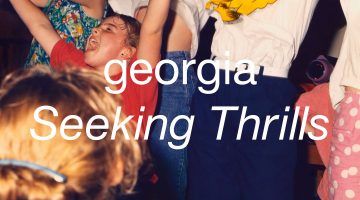
Elizabeth Grant—known as Lana Del Rey—has always experimented and encapsulated stages of her life through visuals and sounds. The singer-songwriter introduced herself with her first studio album—2010’s “Lana Del Ray A.K.A Lizzy Grant”—a playful, lounge-like album written mostly inside her trailer home in New Jersey. Youthful tunes like “Queen of the Gas Station” and “Brite Lites,” along with smooth, sultry tunes like “Yayo,” set a foundation for Grant and her impressive career to come.
When Grant released “Blue Jeans” and “Video Games” on Youtube in 2011 as Lana Del Rey, she became an internet sensation. A year later, her newest era was captured in her first major-label studio debut album titled, “Born to Die.” The record displayed her captivating, honeyed voice joined by melancholy and retro melodies, but despite its hits, critics called the record “boring” and “awkward,” along with Pitchfork comparing it to a “fake orgasm” and a torch with no flame. Yet, people gravitated toward the singer and listened on.
Del Rey began experimenting with dream pop and psychedelic rock, adding elements of retro surf sounds and hinting at her new love for California, in her third studio album, “Ultraviolence” in 2014. What many would call one of her saddest records yet, “Ultraviolence” displayed her willingness to experiment and write honestly. Hits like “West Coast” and “Shades of Cool” showed the most authentic Del Rey yet.
It wasn’t until her fifth studio album in 2017—”Lust for Life”—that she broke her “sad girl” reputation and shared an optimistic perspective on love and America, while sharing a big smile on the album’s cover. A side effect of Trump’s America, Lana Del Rey shared “Change” and “Coachella-Woodstock In My Mind”—commenting on what she fears but hopes for America’s future. “There’s a change gonna come, I don’t know where or when/But whenever it does we’ll be here for it,” Del Rey sings on “Change.”
Del Rey’s nights on the East Coast—performing in New York clubs and bars and penning from her trailer park in New Jersey—may seem like a figment, but remain the core of her artistry.
Although the singer-songwriter has traded her East Coast lens for West Coast shades, her gravitation and fascination with Americana and love remain the same.
Produced by Jack Antonoff, Del Rey’s newest record “Norman F*cking Rockwell” displays the recurring themes with a fresh, mature take––proving that the once self-proclaimed “Miss America,” has mourned, learned and loved in California. California symbolizes a promised land and safe haven from the America she once knew—accepting its downfall in “The Greatest” with murmuring vocals. The Atlantic compared it to a “wedding band soused on redwine” as she sings: “L.A. is in flames, it’s getting hot/Kanye West is blond and gone/‘Life on Mars’ ain’t just a song/Oh, the lifestream’s almost on.”
In her newest record, Del Rey shatters her old love narratives and proves she’s now the strongest of all her partners with tunes like “Mariner’s Apartment Complex” and the title track—joined by a mixture of delicate, tender surf sounds, soft rock and shameless lyrics. In “Mariner’s Apartment Complex,” Del Rey juxtaposes her old lyrics by refuting her sadness and now serving as her romantic interest’s compass: “You lose your way, just take my hand/You’re lost at sea, then I’ll command your boat to me again/Don’t look too far, right where you are, that’s where I am/I’m your man.”
She further demonstrates her romantic growth in “California” and “Happiness is a Butterfly.” In “California,” Del Rey addresses a past lover—hoping he’s alright and inviting him back into her life as she sings: “Honey, you don’t ever have to act cooler than you think you should/You’re brighter than the brightest stars/You’re scared to win, scared to lose/I’ve heard the war was over if you really choose.” Del Rey certainly chose to end her own war.
This change in her artistry has not gone unnoticed by critics. Critics are calling the album “elegant,” an “obituary for America”—comparing her to the likes of Lou Reed and Bob Dylan and calling her one of the greatest living songwriters. Pitchfork—who has previously called her “awkward” along with other distasteful things—has rated the album a 9.4, which is the highest rated album in the last decade behind Kanye West’s “Yeezus.”
When writing “Norman F*cking Rockwell,” Lana Del Rey wanted to create something easy to listen to on the freeway—writing most of it during her commutes—or to leave it on in the room next door. This album and all its Californian imagery, experimental guitar riffs and elegant, self-aware lyrics did just that. Elizabeth Grant from the East Coast is no more. Lana Del Rey has traded Coney Island for Laurel Canyon and in doing so, has delivered an ode to California—and the California album of the decade.
Crystal Lugo can be reached at ryleejackson@sagebrush.unr.edu, or on Twitter @NevadaSagebrush.












